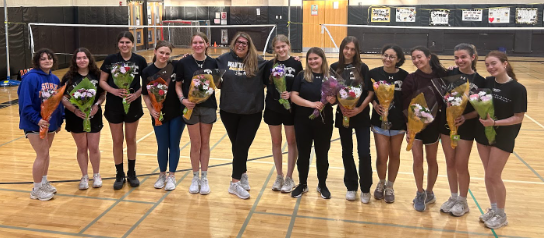In May of this year, the Writers Guild of America (WGA) went on strike against the Alliance of Motion Picture and Television Producers (AMPTP). The WGA strike was around disputes over streaming residuals, the main source of income for writers, and the use of artificial intelligence in the writing room among other issues. Many of the studios in the AMPTP were not paying their writers a livable wage through these residuals. The threat of losing jobs to AI was overtaking writing rooms, especially considering that studios have begun rotating in new groups of writers per episode of their shows and were no longer retaining a steady writing staff. For a long time, negotiations were at a stand still, with writers making demands and members of the AMPTP refusing to consider their offers. These members include Amazon Studios, Apple Studios, Lionsgate, NBCUniversal, Netflix, Paramount Global, Sony Pictures, the Walt Disney Company, and Warner Bros. Discovery. Over the summer while writers were picketing in cities like LA and New York in front of production studios and headquarters, a representative of the AMPTP said they were going to “allow things to drag on until union members start losing their apartments and losing their houses.” Although the AMPTP didn’t plan on truly negotiating with the WGA until late October, an agreement was reached with an updated contract on September 24th. The strike officially ended on September 27th.
So why are the Screen Actors Guild – American Federation of Television and Radio Artists (SAG-AFTRA) still on strike?
The Screen Actors Guild joined the Writers Guild of America on strike against the Alliance of Motion Picture and Television Producers on July 14th for, like writers, livable wages, limitations on artificial intelligence, trained hair and makeup professionals and safe equipment for all hair and skin types, proper revenue from streaming services, and reimbursement of relocation expenses.
Despite what many people believe, a very small fraction of Hollywood actors are the glamorous, rich stars we think they are. 92% of SAG-AFTRA’s members make less than 80 thousand dollars a year and 86% don’t qualify for the union’s healthcare, meaning they make less than 26 thousand dollars annually. With the integration of AI into the production process of a film, actors’ likenesses can be scanned and used in projects they had no part in and are sometimes completely unaware of. SAG-AFTRA is asking they be granted informed consent and fair compensation for the use of their likeness through AI. Like the WGA, SAG-AFTRA is requesting a ratification to the way the AMPTP pays their residuals. Speaking about residuals, actor Sean Gunn said “It [Gilmore Girls] has been one of their [Netflix] most popular shows for a very long time, over a decade. It gets streamed over and over and over again, and I see almost none of the revenue that comes into that.” Gunn was a regular on the seven season show appearing in 137 of the show’s 153 episodes.
Along with the issue of residuals and proper payment comes relocation expenses. Many television shows film in Vancouver, Canada or surrounding areas, and actors and crews are required to temporarily relocate for the duration of filming. Actors are responsible for finding their own housing, means of transportation, and transportation to and from filming locations from their homes in the United States.
While there is no end in sight for the SAG-AFTRA strike on the AMPTP, there is still hope for the negotiations and the near future of Hollywood as studios such as A24 have agreed to all of SAG-AFTRA’s terms and is allowed to continue working on film and television projects with SAG members. SAG-AFTRA hopes to get back to work doing what they love as soon as they can, but they will not take no for an answer when negotiating for the livelihood of their members.














